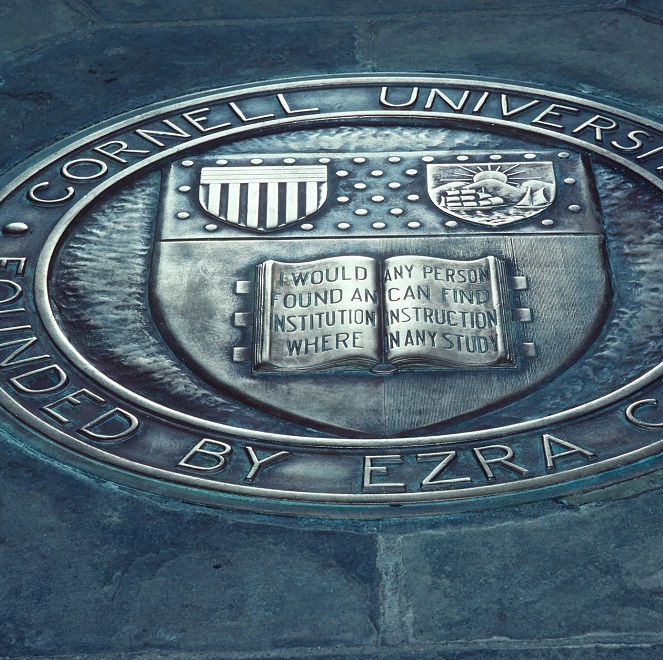News
Full listing
May 9, 2024
With pulses of sound through tiny speakers, Cornell physics researchers have clarified the basic nature of a new superconductor.Since it was found to be a superconductor about five years ago, uranium ditelluride has created a lot of buzz in the quantum materials community – and a lot of confusion, with more than a dozen theories about the true nature of its superconducting properties. Some suggested valuable possibilities for quantum computing.
March 12, 2024
How do you know you are looking at a dog? What are the odds you are right?
If you’re a machine-learning algorithm, you sift through thousands of images – and millions of probabilities – to arrive at the “true” answer, but different algorithms take different routes to get there.
A collaboration between researchers from Cornell and the University of Pennsylvania has found a way to cut through that mindboggling amount of data and show that most successful deep neural networks follow a similar trajectory in the same “low-dimensional” space.
“Some neural networks take different paths. They go at different speeds. But the striking thing is they’re all going the same way,” said James Sethna, professor of physics in the College of Arts and Sciences, who led the Cornell team.
February 24, 2024
A phase of matter called Bragg glass, which prior to now had been purely theoretical, has been observed in a laboratory setting. Researchers, including physicist Krishnanand Mallayya of Cornell University, found this strange phase within an alloy containing palladium, terbium, and tellurium (PdxErTe3), as documented in a study published in Nature Physics.
February 20, 2024
Chao-Ming Jian and his research group study the highly entangled quantum matter and exotic quantum criticalities. In particular, Jian focuses on understanding the topological properties of quantum matter and the universal behavior of many-body quantum entanglement both in and out of equilibrium.
February 13, 2024
Researchers led by Cornell have discovered an unusual phenomenon in a metal-insulating material, providing valuable insights for the design of materials with new properties by way of faster switching between states of matter.
The paper’s co-authors include Kyle Shen, the James A. Weeks Professor of Physical Sciences in the College of Arts and Sciences.
https://www.nature.com/articles/s41567-024-02396-1
February 9, 2024
Cornell quantum researchers have detected an elusive phase of matter, called the Bragg glass phase, using large volumes of x-ray data and a new machine learning data analysis tool. The discovery settles a long-standing question of whether this almost–but not quite–ordered state of Bragg glass can exist in real materials.
The paper, “Bragg glass signatures in PdxErTe3 with X-ray diffraction Temperature Clustering (X-TEC),” published in Nature Physics on Feb. 9. The lead author is Krishnanand Madhukar Mallayya, postdoctoral researcher in the Department of Physics in the College of Arts and Sciences (A&S). Eun-Ah Kim, professor of physics (A&S), is the corresponding author. The research was conducted in collaboration with scientists at Argonne National Laboratory and at Stanford University.
February 6, 2024
“One obvious place to look is nickel because nickel is right next to copper on the periodic table,” said Kyle Shen, the professor who oversaw the project led by postdoctoral fellow Christopher Parzyck. “So people thought maybe we can do some material synthesis magic and make nickel-bearing compounds sort of like cuprates. That idea existed 30 years ago. The reason it took so long to realize is it turns out nickelate superconductors are hard to make.”










